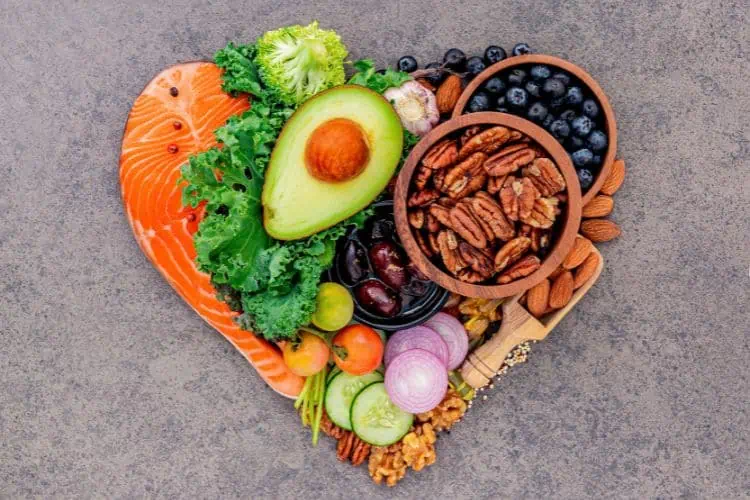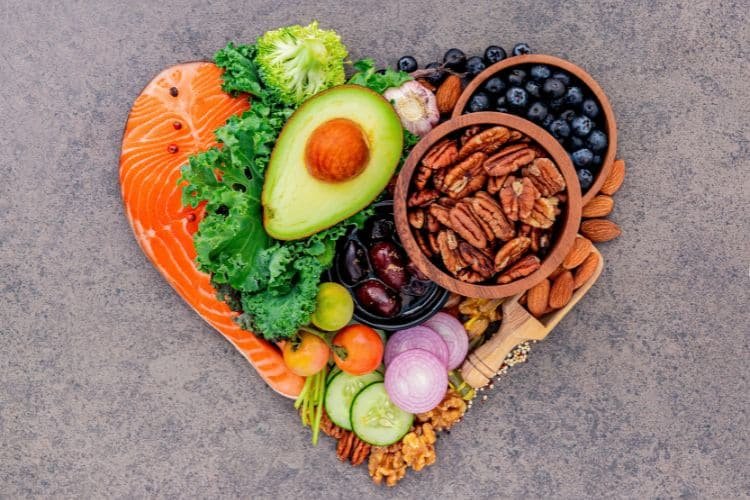
Maintaining a heart-healthy diet is one of the most effective ways to prevent cardiovascular disease, manage blood pressure, reduce cholesterol, and support overall health. In this comprehensive guide, we’ll explore the best heart-healthy diets, foods to include and avoid, practical meal tips, and how to implement sustainable lifestyle changes that promote long-term heart health.
What Is a Heart-Healthy Diet?
A heart-healthy diet is a nutritional plan that focuses on promoting cardiovascular function by reducing saturated fats, trans fats, added sugars, and sodium while increasing the intake of whole foods rich in fiber, healthy fats, antioxidants, and essential nutrients. It’s not a temporary fix, but a long-term commitment to fueling your body with food that supports heart function.
Key Principles of a Heart-Healthy Diet
- Focus on whole, minimally processed foods
- Limit saturated and trans fats
- Reduce added sugars and sodium
- Eat a variety of fruits and vegetables
- Incorporate lean proteins and healthy fats
- Prioritize high-fiber whole grains
The Best Heart-Healthy Diets
Several well-established diets are proven to support cardiovascular health. Let’s explore the top science-backed options.
1. Mediterranean Diet
The Mediterranean Diet is widely regarded as one of the healthiest diets in the world. It emphasizes plant-based foods, healthy fats, and moderate portions.
Key Features:
- High intake of fruits, vegetables, legumes, and whole grains
- Healthy fats from olive oil, nuts, and seeds
- Lean proteins, especially fish and seafood
- Limited red meat and processed foods
- Moderate consumption of dairy and wine
Heart Health Benefits:
- Lowers LDL (bad) cholesterol
- Reduces risk of stroke and heart attack
- Contains anti-inflammatory properties
2. DASH Diet (Dietary Approaches to Stop Hypertension)
The DASH Diet was specifically designed to combat high blood pressure, one of the major risk factors for heart disease.
Key Features:
- Emphasizes fruits, vegetables, and low-fat dairy
- Includes whole grains, poultry, fish, and nuts
- Limits sodium, red meat, sweets, and sugary beverages
Heart Health Benefits:
- Significantly reduces blood pressure
- Supports weight loss and cholesterol control
- Improves insulin sensitivity
3. Plant-Based Diet
A plant-based diet focuses on consuming mostly or exclusively foods from plant sources. This includes vegetarian and vegan diets.
Key Features:
- Emphasizes vegetables, fruits, legumes, nuts, seeds, and whole grains
- Excludes or limits meat, dairy, and eggs
Heart Health Benefits:
- Lowers cholesterol and triglycerides
- Reduces risk of coronary artery disease
- Supports weight management
Heart-Healthy Foods to Add to Your Diet
Choosing the right foods can dramatically improve heart health. Incorporate the following nutrient-rich foods into your daily meals.
Fruits and Vegetables
Loaded with fiber, vitamins, and antioxidants, produce is essential for a heart-healthy diet.
Best Options:
- Leafy greens (spinach, kale, arugula)
- Berries (blueberries, strawberries, raspberries)
- Citrus fruits (oranges, grapefruits)
- Cruciferous veggies (broccoli, cauliflower, Brussels sprouts)
Whole Grains
Whole grains are a great source of dietary fiber, which helps reduce cholesterol and maintain healthy blood pressure.
Top Picks:
- Oats
- Brown rice
- Quinoa
- Barley
- Whole wheat bread and pasta
Healthy Fats
Not all fats are bad. In fact, unsaturated fats are essential for heart health.
Great Sources:
- Extra virgin olive oil
- Avocados
- Nuts (almonds, walnuts, pistachios)
- Seeds (chia, flax, sunflower)
- Fatty fish (salmon, mackerel, sardines)
Lean Proteins
Replace red meat with lean protein sources to help reduce saturated fat intake.
Ideal Proteins:
- Skinless poultry
- Fish and seafood
- Legumes and beans
- Low-fat dairy
- Plant-based protein like tofu and tempeh
Legumes and Beans
Beans are high in fiber, protein, and antioxidants—all important for heart health.
Best Choices:
- Lentils
- Chickpeas
- Black beans
- Kidney beans
- Navy beans
Foods to Avoid or Limit
Even if your diet includes heart-healthy foods, it’s important to limit foods that can increase your risk of heart disease.
1. Saturated and Trans Fats
Too much saturated fat raises bad cholesterol levels. Trans fats are even more dangerous and should be avoided completely.
Avoid:
- Fried foods
- Baked goods with hydrogenated oils
- High-fat dairy
- Fatty cuts of red meat
2. Sodium (Salt)
Excessive sodium intake contributes to high blood pressure, a major risk factor for heart disease.
Limit:
- Processed and packaged foods
- Canned soups
- Fast food
- Deli meats
- Salt-heavy condiments (soy sauce, ketchup)
3. Added Sugars
Sugar contributes to obesity, inflammation, and high triglycerides—all risk factors for heart disease.
Watch Out For:
- Sweetened beverages
- Desserts and pastries
- Sugary cereals
- Candy and energy drinks
4. Refined Carbs
Refined carbohydrates cause spikes in blood sugar and offer little nutritional value.
Examples:
- White bread
- White rice
- Pasta made with refined flour
- Pastries and baked goods
Heart-Healthy Diet Eating Tips for Everyday Life
It’s not just what you eat—it’s also how you eat. Here are practical tips for staying on track with a heart-friendly diet.
Practice Portion Control
Overeating—even healthy food—can lead to weight gain. Use smaller plates, read nutrition labels, and avoid eating out of packages.
Cook More at Home
Preparing meals at home allows you to control ingredients and portions, reduce sodium, and avoid unhealthy fats.
Plan Your Meals
Meal planning can help reduce impulse decisions and make healthy eating easier throughout the week.
Read Nutrition Labels
Learn how to read labels for sodium, trans fats, and added sugars. Aim for products with fewer ingredients and recognizable names.
Snack Smart
Choose heart-healthy snacks like:
- A handful of almonds
- Fresh fruit
- Whole grain crackers with hummus
- Veggies with low-fat yogurt dip
Sample 1-Day Heart-Healthy Diet Meal Plan
Here’s an example of what a full day of heart-healthy eating might look like:
Breakfast:
- Oatmeal topped with berries and chia seeds
- Green tea or black coffee
Lunch:
- Quinoa salad with chickpeas, cherry tomatoes, spinach, and olive oil dressing
- Apple slices with almond butter
Snack:
- Carrot sticks with hummus
Dinner:
- Grilled salmon with steamed broccoli and brown rice
- Mixed greens with balsamic vinaigrette
Dessert:
- Fresh fruit or a small piece of dark chocolate
Supplements and Heart Health
While food should be your primary source of nutrients, certain supplements may support heart health when needed.
Common Heart-Healthy Diet Supplements
- Omega-3 fatty acids – Found in fish oil, supports triglyceride levels
- CoQ10 – Antioxidant that may help with energy production in heart cells
- Magnesium – Important for blood pressure regulation
- Fiber supplements – Helpful if you’re not getting enough fiber from food
Always consult your doctor before beginning any supplement regimen, especially if you’re on medications.
Lifestyle Habits That Complement a Heart-Healthy Diets
Diet alone isn’t enough to ensure heart health. Combine your healthy eating plan with smart lifestyle choices.
Exercise Regularly
Aim for at least 150 minutes of moderate exercise per week or 75 minutes of vigorous activity. Walking, swimming, cycling, and strength training are all excellent options.
Manage Stress
Chronic stress can increase inflammation and blood pressure. Incorporate stress-reducing practices like:
- Meditation
- Deep breathing
- Journaling
- Yoga
Get Quality Sleep
Poor sleep can negatively affect blood pressure, hormones, and weight. Aim for 7–9 hours per night.
Quit Smoking and Limit Alcohol
Smoking damages blood vessels and accelerates heart disease. If you drink alcohol, do so in moderation—one drink per day for women and two for men.
Heart-Healthy Diets for Specific Needs
You can tailor heart-healthy eating to accommodate individual health conditions, preferences, or goals.
For High Blood Pressure
- Follow the DASH diet
- Limit sodium to less than 1,500 mg per day
- Eat potassium-rich foods like bananas and sweet potatoes
For High Cholesterol
- Eat soluble fiber (oats, beans, fruits)
- Avoid trans fats and reduce saturated fats
- Consider plant sterols or stanols
Weight Loss
- Create a moderate calorie deficit
- Focus on high-fiber, high-protein foods to stay full
- Avoid processed and sugary snacks
Heart-Healthy Diets
Heart disease is largely preventable through a combination of healthy eating, active living, and avoiding harmful habits. By adopting a heart-healthy diet rich in whole foods, healthy fats, and nutrient-dense meals, you can dramatically improve your cardiovascular health and overall well-being.
Start small—replace processed snacks with fruit, cook at home a few nights a week, or add more greens to your plate. Over time, these simple changes can lead to lasting improvements in your heart health.




